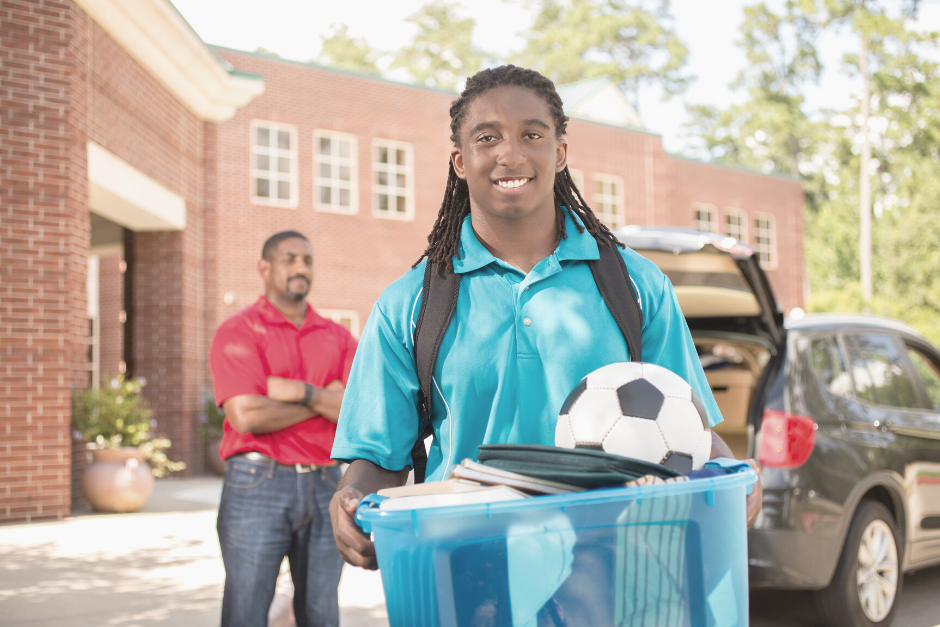With the summer slipping by, are you scrambling to teach your college-bound teen what they need to know to live on their own for the first time?
Doing laundry, managing money, cooking simple meals and cleaning are certainly valuable life skills young people should learn to function independently. Just as critical to their college success, however, is learning skills that help support their mental and emotional health as they face new challenges without the support systems of home and family.
For some kids the transition from high school to college is overwhelming. They are confronted with new academic, social and time management pressures at the same time as they are trying to navigate dorm life without the help of their parents.
A national survey of college students in 2020 found that nearly 40 percent experienced depression. One in three reported having had anxiety, and one in seven said they’d thought about suicide in the past year. In a survey of directors of college counseling centers, nearly 90 percent reported that demand for their services had gone up in the previous year. More recent research shows that the pandemic has further exacerbated these trends.
As parents, we can’t follow our kids to college to support them. The best we can do is to provide them with a toolbox of skills and habits they can use to cope with the practicalities of daily living as well as the emotional challenges they are going to face.
Skills to Know
Here are some good skills for supporting well-being and emotional regulation that young people can practice now as they prepare to live independently:
- Self-Advocacy – Help your teen learn how to advocate for themselves. When they understand their own needs and emotions, learn to speak up for themselves, and act to ensure their needs are met, they feel more in control of their circumstances and gain the self-confidence to ask for help when they need it. Start encouraging your teen to take the lead in their interactions with adults. Have them talk to their teachers without you, set up their own doctors’ appointments or apply for jobs on their own before they leave home.
If they have mental health challenges, make sure they are able to manage their medications and therapy appointments and that they know that mental health services and classroom accommodations are a right, not a privilege at college.
- Self-Care – College is often a time of excess with late nights, poor diet and irregular schedules. We know that lack of sleep and exercise can have a significant impact on both physical and mental wellbeing. Encouraging consistent self-care routines before your child leaves home can help counter the effects. When your teen is used to prioritizing good sleep, regular exercise and healthy eating, it will be easier for them to keep up with those habits away from home.
- Time-management – Learning time management is an ongoing process that kids typically start before middle school. As they get ready for college, parents can encourage good practices such as planning ahead, using a calendar, limiting time spent on technology, developing a good work/life balance and making good use of unstructured time. When young people are able to manage their time well, they are less likely to become overwhelmed and stressed by their academic responsibilities.
- Making use of soothing and coping strategies – Help your teen identify and practice strategies that help them feel better when they become emotionally dysregulated. When your child knows ahead of time that listening to music, going for a run or certain mindfulness practices such as breathing exercises or meditation help to calm them they’ll have go-to strategies in place for coping with difficult moments or feelings.
- Affective communication – College students must be able to navigate all kinds of new social situations without immediate parental support. This may include communicating professionally and politely with professors and employers, handling conflict with a difficult roommate or apologizing to a friend, knowing how to get and give consent in intimate situations, setting clear boundaries, or avoiding dangerous or unwanted situations with peers. Practicing how to respond in difficult conversations, being prepared and knowing what to say, will give your young person the confidence to communicate effectively in difficult situations. When the opportunity arises, and your teen is open to it, you may want to consider some roleplaying exercises.
Working in tandem, parents and teens can establish a good foundation for preserving their mental health and wellbeing in college. They will be able to handle many situations on their own, But also make sure to remind them that you are just a phone call or text away when they can’t cope on their own.
If you are concerned about how your child will cope emotionally when they leave home, I am here to help. Give me a call to talk about strategies for moving forward.

